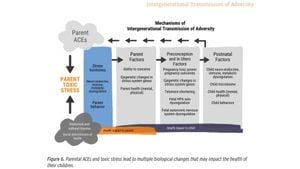On March 5, 2025, German voters decisively chose conservatives, with Friedrich Merz leading the Christian Democratic Union (CDU) to victory, paving the way for him to become the next chancellor. Exit polls indicate the CDU/CSU bloc secured approximately 28.5% of the vote, followed closely by the far-right Alternative for Germany (AfD), achieving its highest ever result with around 20%. The center-left Social Democrats (SPD), led by incumbent chancellor Olaf Scholz, faced electoral disaster, garnering only 16.5% of the vote – their lowest since the post-war era. This election not only highlights shifting political tides within Germany but also resonates with broader trends observed across Europe.
Merz, who has positioned himself as the voice of conservative values and policies, celebrated the results shortly after the polls closed, stating, "Tonight we will celebrate, and from tomorrow we start working". His immediate task now is to form a stable government amid the pressures of coalition negotiations, as Germany's Bundestag often requires multiple parties to collaborate to reach majority governance. The strong presence of the AfD, which has gained traction significantly under the influence of public sentiments around immigration and security, complicates this process.
During the campaign, Merz emphasized his commitment to stricter immigration controls, aiming to appeal to voters dissatisfied with the previous government’s policies. He remarked, “Germany must prepare for the possibility of changes at NATO,” indicating his broader ambitions to reshape Germany's role within the EU and its international relationships. This call to action resonates deeply during turbulent geopolitical climates, particularly with political ties between far-right movements and leaders like Donald Trump. Trump expressed his support for Merz, proclaiming it "a great day for Germany", connecting the election results to similar trends seen within the United States.
The AfD’s remarkable performance signifies a growing acceptance of far-right ideologies within the German political sphere, marking the first time since World War II they have finished second. Despite this success, leaders from the main parties, including Merz, reiterated their commitment to maintaining the so-called 'firewall'—a consensus among traditional parties to exclude the AfD from government coalitions. Alice Weidel, the co-leader of the AfD, asserted, "Our hand remains outstretched to form a government," demonstrating the party's intent to influence the German political agenda regardless of their exclusion from power.
While the CDU/CSU win suggests potential stability, forming alliances will be Merz's immediate challenge. He may seek to partner with the Free Democratic Party (FDP) and possibly reach out to the Greens to create a viable coalition. Past interactions between the CDU and the AfD have raised questions about Merz’s commitment to distancing himself from far-right policies. Observers are concerned about whether his government will yield to pressures for cooperation across ideological lines.
Scholz, acknowledging the SPD's fallout, characterized the election as "a bitter result for the Social Democratic Party". Political analysts have voiced concern about this decline as indicative of changing voter priorities, reflecting widespread dissatisfaction with established parties. With the SPD's weakening position, the path to overcoming internal crises—such as strategic divisions—requires rebranding and re-engaging their traditional base.
Germany’s electoral outcome is reflective of shifting voter sentiments characterized by discontent surrounding immigration policies and global security challenges posed by events such as Russia's aggression against Ukraine. Especially, the heavy public discussion over immigration has been tied to alarming incidents of violence leading to increased support for the AfD.
The election outcomes are not isolated; they mirror broader expectations where similar populist movements have gained ground across Europe. It's notable how many voters have turned to parties promising strict immigration policies amid rising global insecurities. The rise of networks of influence spanning from the U.S. to Europe, as indicated by Donald Trump's commendation of the CDU and their electoral strategy, portrays interconnected shifts within Western democracies.
Looking forward, Merz's administration may signify notable changes not only for German politics but also within the EU framework. Economic policies, relations with NATO, and energy strategy (including Merz’s position on nuclear energy) await examination as new governance takes shape. The anticipated coalitions will be instrumental for the coalition to navigate international partnerships and address domestic concerns, particularly those revolving around economic stability and societal cohesion.
Conclusively, the results of the 2025 German federal election will undoubtedly shape the nation’s political dialogue and coalition formation strategies for years to come. Friedrich Merz’s leadership may also provide insight on the resurgence of conservative movements, prompting analysts and citizens alike to reconsider the political future of Germany and its role within Europe.



